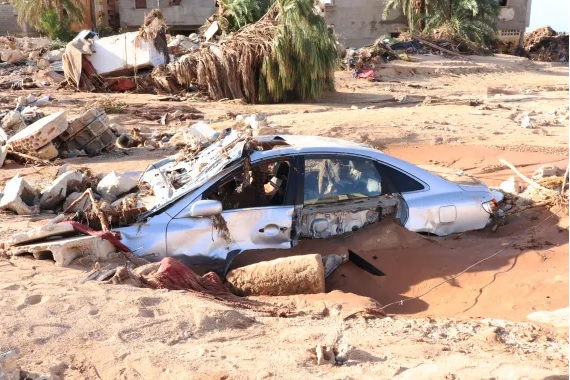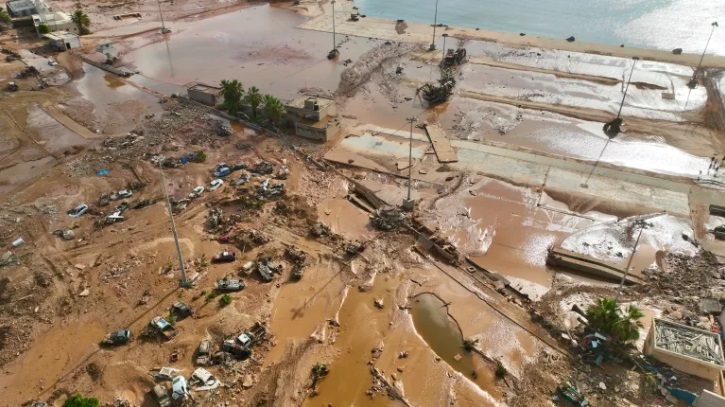Search teams are scouring the streets, collapsed buildings, and even the sea for bodies after a catastrophic flood hit the northeastern coastal city of Derna. Authorities report that at least 5,300 people are presumed dead, with the death toll expected to rise.
“Wherever you go, you find dead men, women, and children,” Emad al-Falah, an aid worker from Benghazi, said over the phone from Derna. Emergency teams are relentlessly working to find survivors and retrieve bodies after the disaster that struck three days ago, killing over 5,000 people and leaving 10,000 missing.

A City in Ruins
Aerial footage and eyewitness videos circulating on social media paint a bleak picture. Whole neighborhoods have been washed away, hospitals are non-operational, and morgues are overwhelmed. Cars are overturned amid the debris, and rooftops have caved in. Satellite images corroborate the destruction, showing an entire city swept by water and sand.
Chaos Amplifies Crisis
Adding to the difficulties of rescue efforts is Libya’s political fragmentation. The country is split between two rival administrations, leaving it especially vulnerable to natural disasters. The city of Derna, the worst affected by the floods, falls under the control of Khalifa Haftar and his eastern-based government, which is not internationally recognized.
Inadequate Preparedness
Despite climate forecasts warning of the impending disaster days in advance, local authorities were slow to act. “We are not equipped to handle this level of damage,” Major General Ahmed Al-Mismari, the spokesman for the Libyan National Army in the east, acknowledged.

International Aid Conundrum
Humanitarian aid is flowing into Libya from various countries, including Egypt, the UAE, Turkey, Italy, and Algeria. However, the political divide in the country complicates where the aid is sent. Most countries are sending their aid to Benghazi, the closest major city to Derna, except for Algeria, which sent its aid to the UN-recognized government in Tripoli.
The Climate Change Factor
The devastating flood is a result of a strong low-pressure system, also affecting Greece last week. Experts suggest that warmer Mediterranean Sea surface temperatures, a symptom of global climate change, may have intensified the storm.
“While no formal attribution of the role of climate change in making storm Daniel more intense has been conducted yet, it is safe to say that the Mediterranean Sea surface temperatures have been considerably above average throughout summer,” said Karsten Haustein, a climate scientist and meteorologist.
Urgent Appeals
With thousands still missing, tens of thousands homeless, and whole communities in mourning, the need for international aid and coordinated emergency response is more critical than ever.
Some information in this story came from Al Jazeera and CNN.

